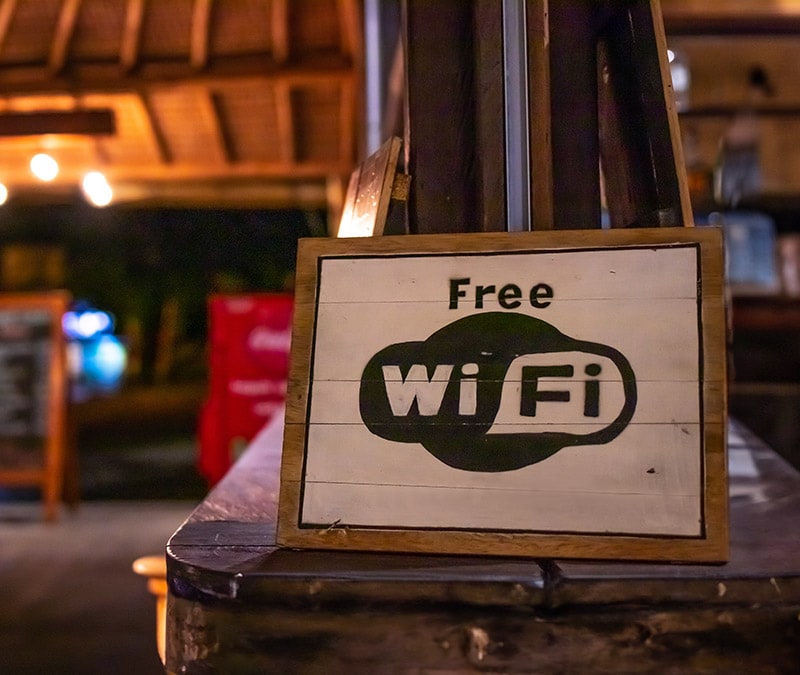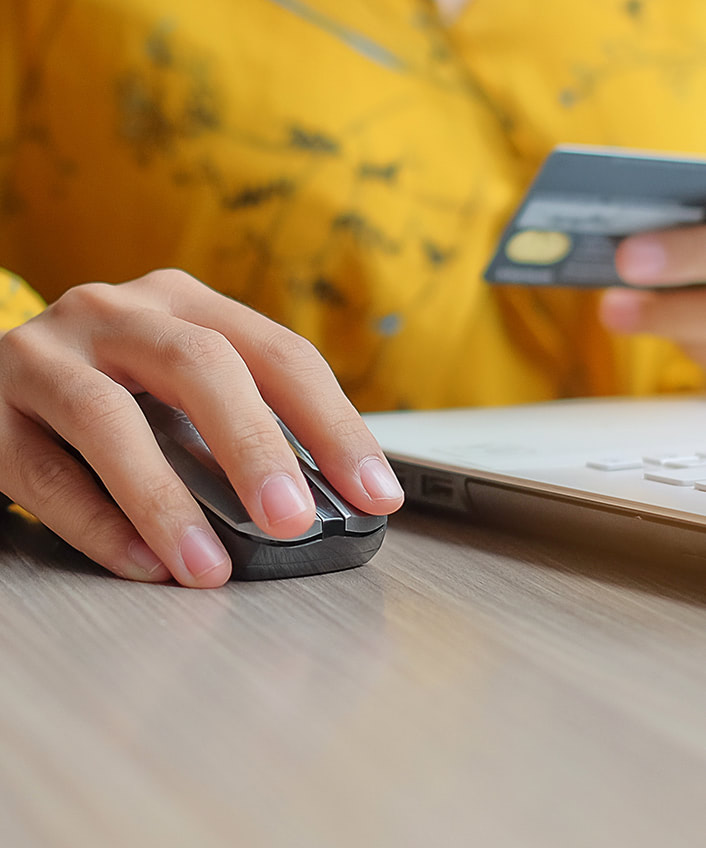Is free public Wi-Fi as safe as you think?
In an age when staying connected is vital, free public Wi-Fi can often feel like an unexpected gift. But there are associated risks to be aware of. Learn what they are and how using a VPN can help you stay safer. Then, install Norton VPN and start using it straight away to help secure your free Wi-Fi connection and keep your communications private.

The allure of free Wi-Fi and its popularity
Free Wi-Fi is a common offering at public places like coffee shops, airports, and trains (including The Underground). Going online without having to use mobile data is a benefit that encourages connecting to these networks.
The Norton Wi-Fi Risk Report found that in the UK:
- 29% of people have used public Wi-Fi to check their bank accounts.
- 42% of people can’t wait more than a few minutes to log onto a Wi-Fi network when they arrive somewhere new.
- 64% of people have used public Wi-Fi to log in to their personal email accounts.
- 55% of people say access to a strong Wi-Fi network is a deciding factor when choosing a holiday rental or hotel.
Public Wi-Fi: Open vs secured
Public Wi-Fi refers to wireless networks in public spaces that are accessible to anyone within their range. However, some public Wi-Fi networks are safer than others.
Open Wi-Fi networks
Open or unsecured Wi-Fi networks allow anyone to connect without entering a password. These networks lack encryption and pose significant security risks. When you connect to an open network, your data is transmitted in an unencrypted form, meaning someone who intercepts it will have an easier time reading it.
Secured Wi-Fi networks
Secured Wi-Fi networks use encryption protocols to protect your private data, providing higher levels of security. Secured networks require login details like a password for access, and users may need to agree to terms and conditions. When you connect to a secured network, the encryption it uses makes it difficult for cybercriminals to understand and misuse your data.
The risks associated with unsecured networks
When using free public Wi-Fi or any unsecured Wi-Fi network, your private information is at risk. Unsecured Wi-Fi networks are prime targets for cybercriminals, because unsecured network traffic is easier to intercept. Awareness of the risks of public Wi-Fi is the first step toward safeguarding your privacy when using public hotspots.
Public Wi-Fi can be dangerous thanks to these hacking risks:
Man-in-the-Middle (MitM) attack
One of the most common threats to your personal information is when hackers use a Man-in-the-Middle (MitM) attack to eavesdrop on what you’re doing online. In this type of attack, the hacker will intercept information — such as your bank account credentials, credit card numbers, or social media logins — that passes between your device and the Internet.
Evil twin attack
An evil twin attack is when a hacker tries to trick you into connecting to a fake Wi-Fi access point that mimics a legitimate one. These can be very convincing by using the exact name, or a very close match, of the legitimate network you’re trying to access. If you connect to a hacker’s fake hotspot, they’ll likely be able to spy on whatever data you send over the fake network.

How to stay safer on free public Wi-Fi networks
You need to take extra precautions when connecting to free Wi-Fi. Even if a public Wi-Fi connection is secured, vulnerabilities and threats may still exist. Follow these tips to stay safer online when using public Wi-Fi:
Avoid sensitive transactions
When connected to public Wi-Fi, avoid accessing sensitive websites or conducting financial transactions. Refraining from sensitive activities on public Wi-Fi minimises the risk that your communications are exposed.
Confirm Wi-Fi network names
Remember the evil twin attacks where cybercriminals set up fake Wi-Fi networks? Always double-check that the Wi-Fi network name is exactly what you expect. And since fake networks can look identical, you should use a virtual private network (VPN) on public Wi-Fi so that your data is encrypted should you accidentally connect to a fake network.
Use a VPN
But it’s not just evil twin attacks and MitM attacks you need to watch out for. Cybercriminals have other ways to intercept your private data. Use a VPN on public Wi-Fi to help boost your privacy and protect the personal information you share online. VPNs like Norton VPN act as a secure tunnel through which your communications travel, helping to ensure that they remain confidential and protected from prying eyes.
Use reliable antivirus software
Even though a VPN can mask your data, there’s still the risk of malicious links and downloads hiding online. Use an award-winning antivirus like Norton 360 Deluxe to help keep your devices safe from malware. Norton 360 also features a built-in VPN and other tools, so you get multiple layers of protection in a single, lightweight app.
Switch off auto-connect
Most devices will have an auto-connect feature, allowing them to connect automatically if you’re in range of Wi-Fi. Make sure this feature is switched off so you don’t accidentally connect to an open or another public Wi-Fi network you previously joined.
Stay safer on free Wi-Fi with Norton VPN
It’s essential to exercise caution when using public networks. Your digital privacy should always be a top priority. By being aware of the risks, understanding the importance of encryption, and following best practices, you can significantly reduce the threats of free public Wi-Fi.
Remember, you're not alone in your concerns about the safety of public Wi-Fi. Thankfully, solutions like Norton VPN help keep your online activity private and the data you send and receive more secure. Download Norton VPN today — you can try it for free for 30 days.
Editorial note: Our articles provide educational information for you. Our offerings may not cover or protect against every type of crime, fraud, or threat we write about. Our goal is to increase awareness about Cyber Safety. Please review complete Terms during enrollment or setup. Remember that no one can prevent all identity theft or cybercrime, and that LifeLock does not monitor all transactions at all businesses. The Norton and LifeLock brands are part of Gen Digital Inc.





Want more?
Follow us for all the latest news, tips and updates.